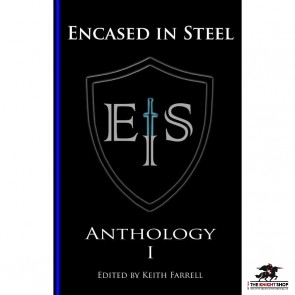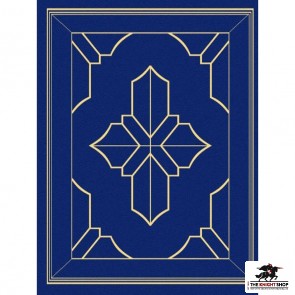All Books
-
German Longsword Study Guide
A study guide for the German longsword, explaining the Liechtenauer tradition and where we get our information about the system.
Learn More
The AHA German Longsword Study Guide is an award-winning publication, with the HEMA Scholar Awards recognising Keith Farrell and Alex Bourdas with the “Best Instructor” award for research published in 2013.Excl. Tax: £15.00 Incl. Tax: £15.00 -
Of the Single Rapier
Bruchius describes a style of rapier fencing that evolved from the teachings of Fabris. He presents this style through a brief explanation of the principles of fencing followed by 212 lessons. Learn MoreExcl. Tax: £18.00 Incl. Tax: £18.00 -
Lessons on the Thrust
This was one of the first concise and systematic treatises on the typically German style of rapier fencing that evolved from the teachings of Fabris and his German students. L’Ange presents his personal point of view on this fencing style, which includes a rather large selection of brutal grappling moves.
Learn MoreExcl. Tax: £18.00 Incl. Tax: £18.00 -
Swords, Science and Society
Presented within this book is an investigation of the Company of Liechtenauer, tracing their connections and influences through archival records spanning more than a century. Scholarly Fencing is contrasted with what was referred to as ‘Common Fencing’. This book demonstrates the Aristotelian and Scholastic approach that defined the secret Art of Liechtenauer, and describes the science of sword-fighting in the 15th and 16th centuries.
Learn MoreExcl. Tax: £30.00 Incl. Tax: £30.00 -
Encased in Steel Anthology I
The book is divided into five thematic parts, each dealing with a different element of the study of historical European martial arts. Topics include chivalry, history and research, studies of weapons, test cutting, and practical concerns.
Learn MoreExcl. Tax: £15.00 Incl. Tax: £15.00 -
The Expert Sword-Man's Companion, 1728
This is a highly accurate reproduction of McBane’s original work from 1728, created by the historian Ben Kerr. It features reproductions of all the original image plates as well as a full and accurate transcription of McBane’s original text including his teaching on self-defence, an account of his life and adventures and the art of gunnerie.
Learn MoreExcl. Tax: £25.00 Incl. Tax: £25.00 -
The Guards and Lessons of the Highland Broadsword
In 1798 and 1799, Henry Angelo, a member of famed Angelo dynasty of swordmasters, published a series of posters on the use of the Highland broadsword.
Learn MoreExcl. Tax: £10.00 Incl. Tax: £10.00 -
The Art of Defence on Foot, 1798
Roworth’s book The Art of Defence on Foot is a simple system for the broadsword or sabre. His instructions are clear and the book works well for beginners.
Learn More
This facsimile has been recreated from the original treatise owned by the Academy of Historical Arts in Glasgow.Excl. Tax: £15.00 Incl. Tax: £15.00 -
Scorners of Death: Fighting Skills of the Medieval Gaelic Warrior
One of the first works to focus on the weapons and fighting skills of the medieval Gaelic warrior, Scorners of Death offers instruction in the use of the medieval Gaelic sword, sword and buckler, two-handed sword and battle-axe (including both the Lochaber axe and the sparth axe of Ireland), as well as a detailed discussion of the warriors who used these weapons and the strategic context in which they fought.
Learn More
Although there are no technical manuals for the use of these weapons, the authors have developed a training method based on the best historical evidence available. These techniques will be useful for reenactors portraying the Scottish highland or Irish warriors of the Middle Ages, especially in the time period between 1300 and 1600, as well as for any practitioners of Historical European Martial Arts (or HEMA) with an interest in Scottish or Irish history.Excl. Tax: £25.00 Incl. Tax: £25.00 -
Dagger Fencing: The Italian School
Today, fighting with dagger versus dagger, or with knife versus knife, is not a common scenario that people might expect to face. However, it was more common in the Middle Ages and in the Renaissance, when it was normal for people to wear a dagger on their belt. Arguments or fights with daggers could break out; and while duels were more often fought with swords, combatants could also agree to do so with daggers.
Learn More
This is not a book on modern knife fighting; rather, it is a book dealing with the historical knife fighting of Renaissance Italy. The modern blade aficionado will also find material of interest. The book offers several views of short-bladed weapons that were developed and tested when cold steel was the king of weaponcraft and when duels were more common than today.Excl. Tax: £15.00 Incl. Tax: £15.00

















